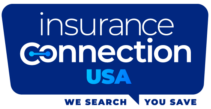EMPLOYEE NOTIFICATION REQUIREMENTS
Employers are responsible to provide notification of certain rights and options available to employees such as Summary Plan Descriptions (SPDs), WHCRA, Medicare Part D, and more. With the introduction of the Affordable Care Act, there is an increased urgency to be current and compliant. The Department of Labor is cracking down on noncompliance with increased audits and assigned fines. The following outline provides an overview of critical notifications, how they apply to your business, when they should be sent, and important steps to ensure compliance.
Insurance Connection USA has partnered with a national firm who specializes in providing compliance services, cobra administration and Section 125 assistance, this firm is available to assist our clients further with information and support. Please let us know if you would like more information about these services.
What Type of Notifications Are Necessary?
Most, if not all, employers have or will have notification obligations related to health and welfare benefits, FMLA, COBRA, pension plans, etc. Notification requirements are not static and are continually changing and evolving. Changes in regulations, legislation, benefits offered, number of employees, and business type drive notification requirements.
Medical Insurance Notifications
If you offer medical insurance to employees, you are obligated to provide several different notifications driven by things like:
• the type of coverage provided (does it include prescription drug coverage),
• provisions of the coverage (does it include maternity),
• the size of your workforce (over 20, over 50), and
• states in which you have facilities and workers.
The following notifications are required to be given to employees, when medical insurance is offered:
• COBRA (Federal or State Mini)
• CHIP (Child Health Insurance Plan)
• MHPA (Mental Health Parity & Addition Equity Act), this only applies to employers with 50 or more employees.
• NMHPA (Newborns & Mothers Health Protection Act), if there is maternity coverage.
• WHCRA (Women’s Health & Cancer Rights Act) if mastectomy & reconstruction coverage.
• HIPAA (Health Insurance Portability and Accountability Act), which includes Pre-Existing Condition Exclusions, Certification of Creditable Coverage, and Special Enrollment Rights.
• SPD (Summary Plan Description) &/or SPD Wrap
• SMM (Summary Material Modification)
• Wellness Program Disclosure
• SBC (Summary Benefits & Coverage)
CMS & MMA Notification
If your plan includes prescription drug coverage, you most likely need to comply with CMS (Center for Medicare & Medicaid Services) and MMA (Medicare Modernization Act) reporting requirements, which includes two notification obligations. The first is a disclosure notice to all Medicare-eligible individuals covered under the prescription drug plan, and the second is an online disclosure to CMS.
FMLA
If you have 50+ employees who work within 75 miles of each other, the Family Medical Leave Act applies, as well as all related FMLA notification requirements.
HIPAA
The Health Insurance Portability and Accountability Act applies to most organizations in one form or another, like the security and privacy of health data.
If in day-to-day operations you work with health information, other HIPAA notice requirements come into play, like data breach requirements. If there is a breach of confidential health data, a triggering HIPAA process and notice applies.
Timing
Each notification has established timelines or triggers by which employers need to provide notifications to employees and/or applicable agencies– some annually and others by a certain due date. Many notifications like COBRA are trigger based driven by such things as termination of employment or other qualifying events.
CMS and MMA reporting requirements have set dates of notification and triggering event notification criteria.
Documentation
It is not enough to say you have provided your employees with the required notifications within the indicated timelines or that you have completed notifications to those agencies managing reporting, like the DOL or CMS. Proof of notification must be documented with the employer carrying the burden of proof, should it be needed. Regardless of the delivery method used to provide notification, whether it is sending notification through the mail, handing out a physical hard copy in an employee meeting, or using an electronic method like company email, it is advised that some form of documentation is maintained as evidence of the notification.
Exchange Notice
Regardless of whether the employer offers health insurance or not, they are required to provide their employees with a Health Exchange Notice by October 1, 2013 and, going forward, to all New Hire employees within 14 days of hire. The notice must include specific items like existence of the Marketplace, how employees may contact the Marketplace for assistance, if the employer’s share of total cost of provided benefits is less than 60 percent (i.e., whether it offers minimum value) and is affordable in accordance with the Affordable Care Act (ACA).
